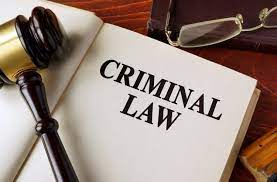When facing criminal charges, one of the most crucial decisions you will make is choosing the right criminal lawyer to represent you. The outcome of your case could largely depend on the expertise, experience, and dedication of your legal counsel. With so much at stake, it's essential to carefully consider your options and select a lawyer who is best suited to handle your specific situation. This guide will provide you with valuable insights and tips on how to choose the right criminal lawyer for your case.
1. Determine Your Needs
Before you start your search for a criminal lawyer in Newmarket, it's important to assess your needs and the nature of your case. Consider the following factors:
Factors to consider:
- The type of crime you are charged with
- The severity of the charges
- Your budget and financial situation
- Your personal preferences (e.g., gender, communication style)
2. Research Potential Lawyers
Once you have identified your needs, start researching potential criminal lawyers who meet your criteria. Here are some ways to find qualified lawyers:
Methods to find potential lawyers:
- Ask for referrals from friends, family, or colleagues
- Check online legal directories and websites
- Contact your local bar association for recommendations
- Attend court proceedings to observe lawyers in action
3. Evaluate Credentials and Experience
When considering a particular criminal lawyer, be sure to evaluate their credentials and experience in handling cases similar to yours.
Things to look for:
- Education and licensing
- Years of experience practicing criminal law
- Track record of success in similar cases
- Membership in relevant legal associations
4. Schedule Consultations
Once you have narrowed down your list of potential lawyers, schedule consultations to meet with them in person. During the consultation, be prepared to ask questions and discuss your case in detail.
Questions to ask during consultations:
- What is your strategy for handling my case?
- How much experience do you have with similar cases?
- What are your fees and billing practices?
- Can you provide references from past clients?
5. Consider Communication and Rapport
Effective communication and a good rapport with your criminal lawyer are essential for a successful attorney-client relationship. Ensure that you feel comfortable discussing sensitive information and asking questions.
Signs of good communication and rapport:
- The lawyer listens attentively to your concerns
- You feel that the lawyer is trustworthy and honest
- You can easily reach the lawyer when needed
- The lawyer explains legal concepts in a clear and understandable manner
6. Trust Your Instincts
Ultimately, trust your instincts when choosing a criminal lawyer. If something doesn't feel right or if you have doubts about a particular lawyer, it's important to listen to your gut instinct and continue your search until you find the right fit.
Signs that a lawyer may not be the right fit:
- Poor communication or lack of responsiveness
- Unwillingness to answer your questions or address your concerns
- Lack of transparency about fees and billing practices
- Unrealistic promises or guarantees about the outcome of your case
Choosing the right criminal lawyer is a decision that should not be taken lightly. By following the steps outlined in this guide and taking the time to research, evaluate, and communicate with potential lawyers, you can increase your chances of securing effective representation for your case. Remember, the outcome of your criminal case could have a significant impact on your future, so it's crucial to choose a lawyer who will vigorously advocate for your rights and best interests.

